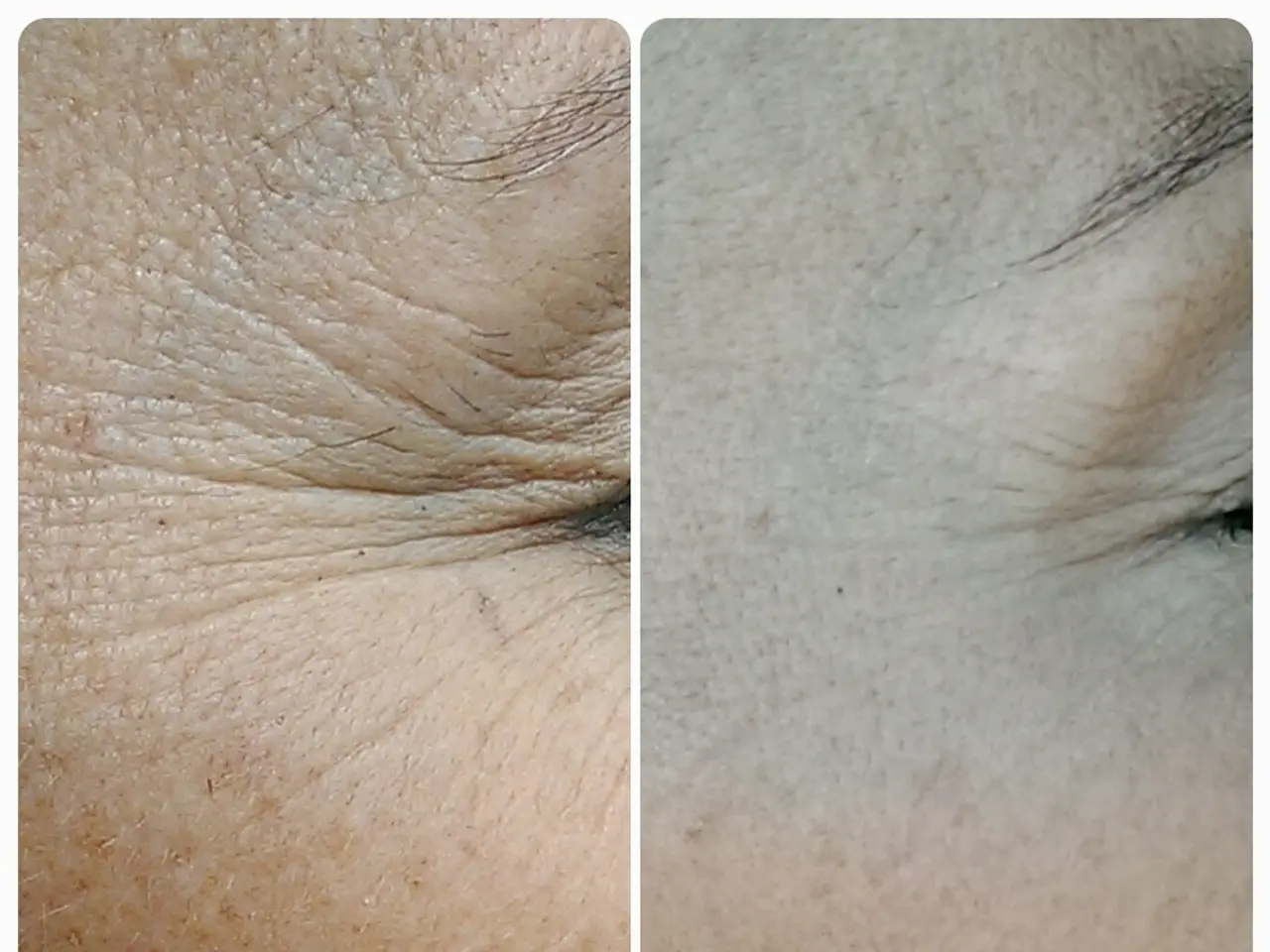Skin Irritation from Skincare Products: Understanding the Causes and Solutions for Burning Sensations on Your Face
Using skincare products can sometimes lead to a burning or stinging sensation on the face, especially for those with sensitive skin. This article aims to shed light on the causes of such reactions and provide some guidance on how to avoid them.
Causes of Skincare Irritation
There are several factors that can cause a burning or stinging sensation after using skincare products. These include:
- The use of harsh or irritating ingredients such as alcohol, alpha hydroxy acids (AHAs), beta hydroxy acids (BHAs), retinoids, preservatives, sodium lauryl sulfate (SLS), and benzoyl peroxide. These substances can dry, irritate, or inflame the skin, leading to discomfort.
- Allergic reactions to certain ingredients can also cause redness and burning at the application site.
- A compromised skin barrier, which can be damaged by overuse of actives, over-cleansing, or environmental factors, makes the skin more sensitive and prone to irritation, stinging, and redness.
- Product combinations or usage frequency that overwhelm and disrupt the skin barrier and microbiome can trigger inflammation and burning sensations.
- Essential oils and herbal extracts in some creams can also cause irritation or burning, especially if the skin is sensitive or the product contains high concentrations of bioactive compounds.
Preventing Skincare Irritation
To avoid these reactions, it is advised to:
- Identify and avoid known irritating ingredients.
- Use products suited to your skin type and avoid overloading with multiple active ingredients at once.
- Limit exfoliation and harsh cleansing to maintain a healthy skin barrier.
- Patch test new products before full use to detect allergies or sensitivities early.
- Incorporate simple, gentle, barrier-supportive skincare items and consult a skin health expert if irritation persists.
Seeking Professional Help
If the burning sensation on the face persists after following the above steps, consulting a dermatologist is important. The dermatologist may suggest switching to products with soothing ingredients like ceramides, glycerin, or colloidal oatmeal. Topical medications like prescription-strength corticosteroids or antihistamines may be prescribed for more severe reactions.
Preventing Future Occurrences
To prevent future occurrences of burning sensations from skincare, one should:
- Perform a patch test before using a new skincare product.
- Introduce new products gradually.
- Choose gentle, pH-balanced products.
- Avoid over-exfoliating.
- Moisturize regularly.
- Be cautious with actives.
For sensitive skin, look for ingredients like aloe vera, glycerin, ceramides, colloidal oatmeal, and hyaluronic acid.
Conclusion
By keeping the skin barrier strong and choosing gentle formulations, you can minimize burning and stinging from skincare products. If you experience a burning sensation on your face after applying skincare products, immediately rinse with cool water, discontinue the use of the product, apply a cold compress, use a gentle moisturizer, avoid other irritants, monitor the skin, protect your skin from the sun, and seek medical advice if necessary.
- Incorporating ceramides into your skincare routine can help strengthen the skin barrier, reducing the likelihood of a burning sensation.
- Exfoliation is an important step in many skincare routines, but overdoing it can lead to skin irritation and increase sensitivity.
- Sunscreen is crucial for protecting the skin from harmful UV rays and reducing the risk of sun damage, which can exacerbate skin irritation.
- Hyaluronic acid is a popular skincare ingredient known for its ability to attract and retain moisture, helping to maintain a healthy skin barrier.
- For sensitive skin, it's important to choose gentler skincare products that are free from harsh ingredients like alcohol, BHAs, AHAs, retinoids, preservatives, SLS, and benzoyl peroxide.
- A vegan skincare routine can be a good choice for those with sensitive skin, as it tends to be free from common allergens and irritants found in animal-derived products.
- Salicylic acid and retinol are both effective acne-fighting ingredients, but they can also cause skin irritation in some people. It's important to introduce them gradually into your skincare routine.
- Toner is a common skincare product that some people may find irritating, especially if it contains high concentrations of essential oils or other harsh ingredients. Opt for a gentle, alcohol-free toner instead.
- Maintaining a healthy skin barrier is essential for preventing skin irritation, and this can be achieved through a balanced skincare routine that includes a cleanser, moisturizer, and any additional active ingredients (such as exfoliants, retinol, or salicylic acid) in moderation.
- Choosing a moisturizer that suits your skin type and contains ingredients like aloe vera, ceramides, colloidal oatmeal, and hyaluronic acid can help keep the skin barrier strong and reduce the likelihood of irritation.
- Taking care of your skin is just one aspect of maintaining overall health-and-wellness. It's also important to prioritize fitness-and-exercise, mental-health, and mens-health or womens-health, depending on your personal needs. Age-related skin changes are a natural part of life, but a good skincare routine can help minimize their impact and keep the skin looking its best as we age.




